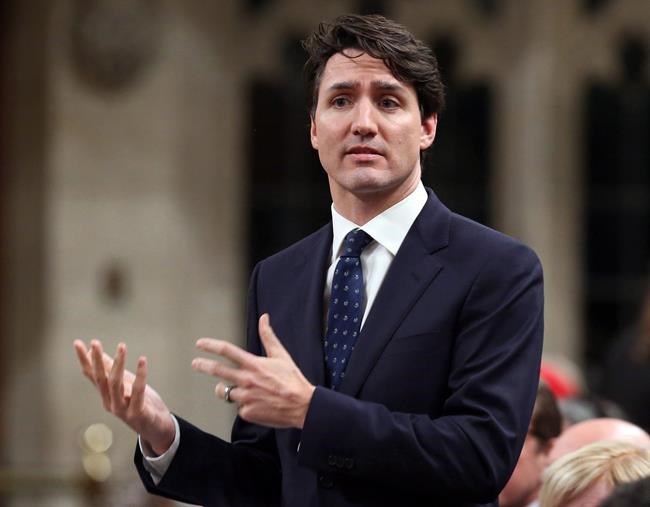It’s beginning to appear as if the ghost of Richard Nixon is haunting Rideau Cottage, home to the prime minister and his family. (The Trudeaus don’t live at 24 Sussex Dr., the aging pile that PMs have traditionally occupied. The most recent estimates of making the place habitable hover around $40 million.)
Nixon, of course, was brought down by the Watergate affair, a political maelstrom characterized by failed attempts at coverup, visibly false denials and ultimately the president’s inability to get ahead of the crisis. He resigned rather than face certain impeachment.
The SNC-Lavalin affair now engulfing Justin Trudeau’s administration bears many of the same hallmarks.
Watergate began with an inexplicably stupid attempt by Republican staffers to break into the Democratic party’s headquarters. They were caught red-handed.
The Lavalin mess began with an equally confounding act. Trudeau’s government decided to give white-collar crime a break, by amending the Criminal Code so that corporations accused of wrongdoing could avoid prosecution by signing a “remediation agreement.”
That meant if they paid some form of reparation, they could go free. Our jails are full of people who would happily take that deal.
Following tabling of the bill, the Montreal-based firm SNC-Lavalin approached the government and asked for such an agreement. The company was facing criminal charges of fraud and corruption.
But the Justice Department, headed by Jody Wilson-Raybould, refused.
That led to stage two in the affair. Pressure was placed on Wilson-Raybould to reverse her decision. Senior government officials attempted to sway her, and ultimately, she says, the prime minister himself weighed in.
If not outright illegal, this was certainly highly improper. In Canada, decisions on whether to prosecute originate in the Justice Ministry, and are supposed to be free of political taint.
Wilson-Raybould refused to give way, and Trudeau demoted her from Justice to Veterans Affairs. She subsequently resigned from cabinet and was followed by treasury board president Jane Philpott, who quit in disgust.
Then came stage three. Backed into a corner, the prime minister refused to admit he had pressured his justice minister, and the Liberals shut down the House of Commons justice committee, which was investigating the allegations.
By then, however, the affair had spiralled out of control. Wilson-Raybould testified in the House of Commons that she had indeed been pressured by the prime minister.
And Philpott, now just a backbench MP, said in an interview with Maclean’s magazine that: “There’s much more to the story that should be told.”
Finally, the hammer blow. Wilson-Rabould released the recording of a phone discussion she had with Michael Wernick, clerk of the privy council and the country’s top civil servant.
This was almost certainly a breach of professional conduct on her part, since the recording was done secretly. But it backed up everything she claimed.
In the call, Wernick told her that Trudeau was “quite determined, quite firm” about this and added: “I think he’s going to find a way to get it done one way or another. So he is in that kind of mood and I wanted you to be aware of that. It is not a good idea for the prime minister and his attorney general to be at loggerheads. I am worried about a collision, then, because he is pretty firm about this.”
If that wasn’t a veiled threat that her job was on the line, I don’t how else to describe it.
And indeed last week, Trudeau expelled both Wilson-Raybould and Philpott from the Liberal caucus. This from the man who calls himself a feminist.
The question now is whether the prime minister can survive. His party lags the Conservatives by nine points in the most recent opinion poll.
And that he is a liability seems clear. That same poll showed him well behind both the Conservative leader, Andrew Scheer, and the NDP’s Jagmeet Singh.
Moreover, just as in the Watergate fiasco, additional snippets keep leaking out. If that continues, the Liberal hierarchy might wonder about the cost of keeping him on.



